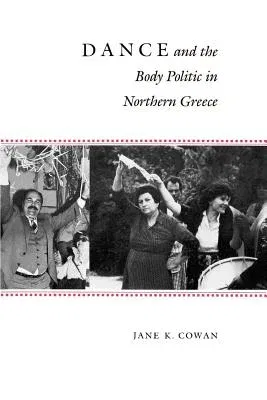Jane K Cowan
(Author)Dance and the Body Politic in Northern GreecePaperback, 21 September 1990

Qty
1
Turbo
Ships in 2 - 3 days
In Stock
Free Delivery
Cash on Delivery
15 Days
Free Returns
Secure Checkout

Part of Series
Princeton Modern Greek Studies
Part of Series
Princeton Modern Greek Studies (Paperback)
Print Length
310 pages
Language
English
Publisher
Princeton University Press
Date Published
21 Sep 1990
ISBN-10
0691028540
ISBN-13
9780691028545
Description
Product Details
Author:
Book Format:
Paperback
Country of Origin:
US
Date Published:
21 September 1990
Dimensions:
23.55 x
15.54 x
1.78 cm
ISBN-10:
0691028540
ISBN-13:
9780691028545
Language:
English
Location:
Princeton
Pages:
310
Publisher:
Weight:
399.16 gm